UN Appoints Members Of Fact Finding Mission On Iran
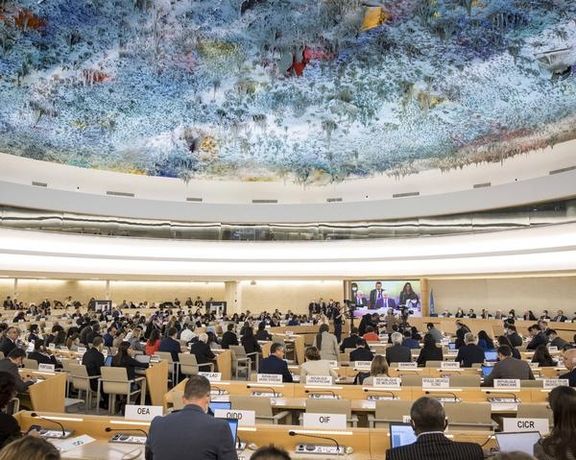
The United Nations’ Human Rights Council has appointed the members of a recently established Fact-Finding Mission to review Iran’s rights violations during recent protests.

The United Nations’ Human Rights Council has appointed the members of a recently established Fact-Finding Mission to review Iran’s rights violations during recent protests.
The council announced Tuesday that President Federico Villegas has appointed Sara Hossain of Bangladesh as the chair of the mission. Shaheen Sardar Ali of Pakistan and Viviana Krsticevic of Argentina are the two other members of the mission.
Earlier, the UN Human Rights Council president had said he believes the newly established fact-finding mission on Iran can make a difference.
Federico Villegas of Argentina expressed hope late November that Iran will cooperate.
Villegas had noted that the council is a multilateral and democratic body where differences of opinion are legitimate, raising hope that the Islamic Republic would cooperate to carry out the mission.
The UN Human Rights Council voted November 24 to launch an independent investigation into Iran's deadly repression of protests, that has killed around 500 civilians.
The motion passed with 25 votes in favor, six opposed and 16 countries abstaining amid an intensifying crackdown on protests after the death of Mahsa Amini which began in mid-September.
Iran has announced that it will not allow an independent investigation into the protests, similar to its refusal to cooperate with UN human rights rapporteurs for 30 years.
Many human rights organizations have criticized the Islamic Republic for not allowing the UN special rapporteurs since 1992 to visit the country.
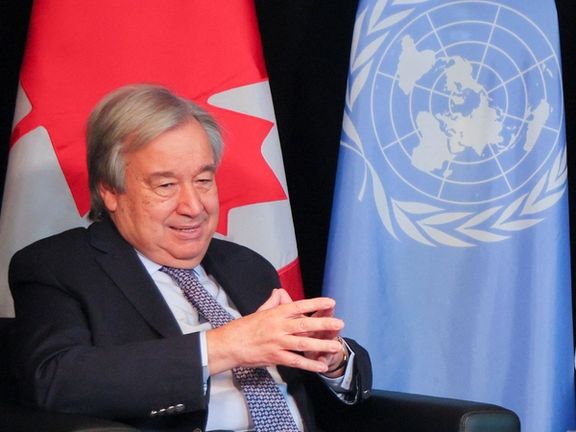
United Nations Secretary-General Antonio Guterres Monday slammed as "totally unacceptable" the crackdown by Iran’s authorities on protests.
In a wide-ranging news conference to close out 2022, Guterres also said that he "will not relent in the pursuit of peace in Ukraine in line with international law and the United Nations Charter." A key principle of the founding UN Charter is respect for sovereignty and territorial integrity.
He is "not optimistic" about the possibility of effective Ukraine and Russia peace talks in the immediate future and believes the military confrontation will go on but added that he "strongly hopes" there can be an end to the war in 2023.
The General Secretary added on Iran that "we are witnessing massive violations of human rights that we strongly condemn."
He also said there is a risk of losing the 2015 Iran nuclear deal known as JCPOA. Long negotiations since April 2021 between the West and Iran came to an impasse in September and since, the United States and European powers say they are focused on the human rights situation in Iran and not on the JCPOA.
The UN Human Rights Council has slammed Iran’s violations and decided to launch an investigation into killings and large-scale imprisonments. Iran was also expelled last week from the UN Commission on the Status of Women, in a drive led by the US.
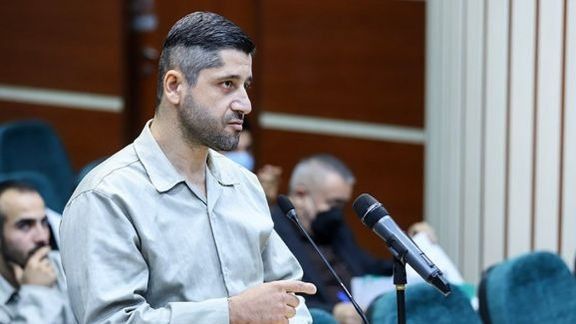
The attorney of an Iranian protester who has been sentenced to death says he was severely tortured to ‘confess’ to killing a Basij militiaman at a protest.
“I met with Seyed-Mohammad Hosseini at Karaj Prison. He cried through his account of tortures, being beaten with tied hands and legs and blindfolded, to being kicked in the head and losing consciousness, the soles of his feet being beaten with an iron rod to being tased in different parts of the body,” Ali Sharifzadeh Ardakani who says he has just recently been allowed to represent Hosseini tweeted Sunday.
“There is no legal validity to the confessions of a man who has been tortured,” he added.
Sharifzadeh had earlier this week said the Revolutionary Court of Karaj did not allow him to take on Hosseini’s case, study the case file, and represent him in the process of appeals to the death sentence. “This is gross violation of the rights of a person sentenced to death,” he tweeted on December 15.
Seyed-Mohammad Hosseini was arrested in November in Karaj, capital of Alborz Province to the west of Tehran, and charged with "waging war against God” and “corruption on earth”, both carrying the death sentence.
Hosseini has been accused of participation in the alleged killing of Ruhollah Ajamian, 27 on November 12. Ajamian who served alongside other security forces as a member of the Basij militia of the Revolutionary Guards (IRGC) was stabbed, beaten, and stripped naked by a group of men and died of his injuries later.
Thirteen protesters were put on trial for his killing by the Revolutionary Court shortly after the incident five of whom, including Hosseini, were sentenced to death.
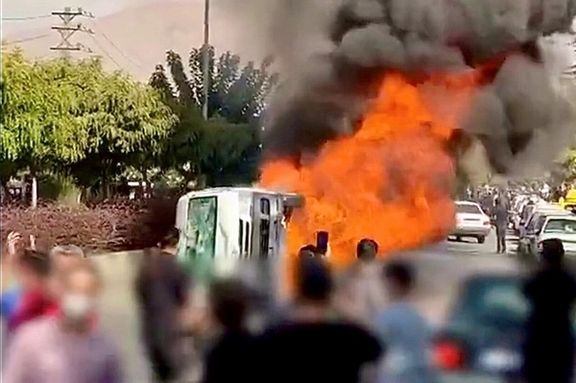
Hosseini was sentenced in an unfair trial without access to his chosen defense attorney, like the majority of other protesters put on trial in the past few weeks.
The Revolutionary Court regularly refuses to accept the power of attorney of independent lawyers who the accused or their families appoint and only approves its trusted lawyers who in many cases only make an appearance during the trial without having even seen the case files.
Hosseini is in imminent danger of execution like at least a dozen other young men who were arrested since protests swept across the country in September following the death in custody of the 22-year-old Mahsa Amini.
“How desperate is a regime to treat its people this way? Do they think that a "confession" under torture is worth anything at all? Now we don't have to assume, we know,” Ye-One Rhie, a member of the German parliament (Bundestag) who has taken on the political sponsorship of rapper Toomaj Salehi asked quoting Sharifi Ardakani’s tweet.
French lawmaker Aude Luquet has taken on Hosseini’s political sponsorship and called for an immediate halt to all executions in Iran. Hosseini is also sponsored by Austrian parlemaintarian Harold Truch.
The Islamic Republic has so far executed Mohsen Shekari and Majidreza Rahnavard, both 23. Both were allegedly tortured into “confessing” to the crimes they were charged with and tried without due process. The executions have enraged many Iranians who believe they were hastily tried and executed to instil fear in the rest of the population and keep them away from the streets.
“Five were sentenced to death for the killing of one Basiji. One was executed for injuring a Basiji. No one was held accountable for the killing of hundreds of citizens. No one was held accountable for killing thousands in the protests in the past few years. This regime has taken justice and freedom to the slaughterhouse,” a tweet posted with the photos of the five sentenced to death in Karaj said on December

Reports from Iran say that the regime officials use private chats, phone logs and text messages of protest detainees as incriminating evidence.
CNN on Monday quoted an Iranian woman who says she has been accused by Iranian authorities of running an anti-regime activist group on Telegram.
The woman introduced as Negin has denied the allegation, but she has told CNN she has “some friends” who were political prisoners.
“They put in front of me transcribed printouts of my phone conversations with those friends,” she said, and “questioned me on what my relationship with those people were.”
“They told me ‘Do you think you can get out of here alive? We will execute you. Your sentence is death penalty. We have evidence, we are aware of everything,’” said Negin, which is not her real name.
Negin said that she realized security agents accessed her Telegram account with a different IP address.
Iranian regime reactivated her Telegram account to see who has been in touch with her while Negin was in jail, she added.
Negin was one of hundreds of protesters detained at Iran’s notorious Evin prison in northern Tehran within the first few weeks of anti-government protests following the death of Mahsa Amini in police custody in mid-September.
The Iranian government may have used similar tactics to surveil the Telegram and Instagram accounts of Nika Shahkarami, the 16-year-old demonstrator who lost her life after a protest in Tehran on September 20.
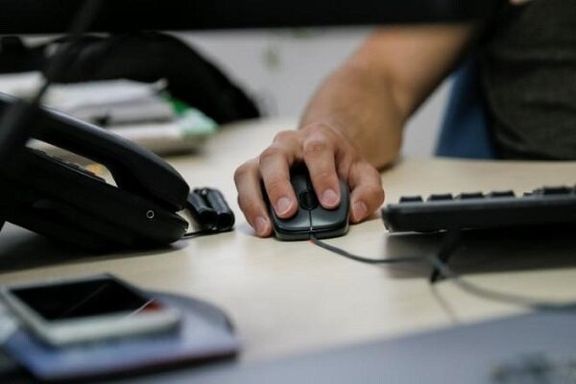
Frustrated over how to block the Internet that savvy Iranians would not circumvent, the Islamic Republic seems to be about shutting down access to the WWW.
The regime has given a 10-day deadline to the American company Meta Platforms, the owner of WhatsApp Messenger and Instagram, to establish offices in the country if they want its applications unblocked. The purpose of this move is to have control over its activities, a demand snubbed by the company.
Facebook, YouTube and Twitter are also blocked. Instagram is the only major international platform still accessible, which Iranians use extensively to conduct ecommerce. This is one major impediment to parliament’s plan for shutting down all foreign social media networks.
The demand had already seemed unreal, but many believe that the regime wanted to have an excuse to block the media platforms for good as it seems unable to stop the flow of information about the protests both within the country and to the outside world.
"If Meta does not respond to our letter, this could be the prologue to a permanent block," National Cyber Centre chief Abolhassan Firouzabadi said in a newspaper interview on Saturday.
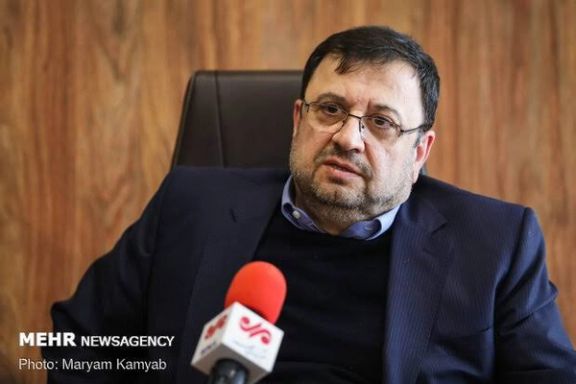
In remarks that were denied later, Interior Minister Ahmad Vahidi had threatened to permanently block WhatsApp and Instagram.
The Islamic Republic moved a couple of time to cut access to world Internet and replace it with an intranet which can be controlled by its intelligence services but one of the hurdles has always been the country’s banking network, which operates through the Internet. But on Sunday, Iran’s Interbank Information Transfer Network electronic banking system ordered all its subsidiaries to change their domains from .com extensions to .ir, which is dedicated to Iranian domains.
Many experts have expressed concerns about the move. Mohammad Mahdi Shariatmadar, the Chairman of the Board of Directors of the FinTech Association, called the "sudden" decision worrisome, saying that "I don't think new or even old payment partners will be able to continue operating with this method."
Milad Jahandar, the CEO of one of the online payment companies, said that the right to choose a domain is an obvious right of any company, noting that such a level of restriction in which the regulator even determines a domain name is unprecedented in the world.
Since January, Iran’s hardliner parliament has been discussing ways to intensify Internet censorship by establishing an intranet that would essentially ban foreign social media networks which allow Iranians to receive uncensored information and communicate with others.
The government has blocked thousands of websites in Iran for nearly 20 years both for ideological and political reasons. Almost all news and political websites not controlled by the government are inaccessible except by special software people need to use to get around the filtering.
Since the current round of protests began across the country in mid-September, a bipartisan group of US lawmakers are working with the US Treasury Secretary Janet Yellen to give Elon Musk’s satellite Internet service Starlink clearance to operate in Iran. The SpaceX CEO is trying to connect its internet services to users across Iran, a move that would be seen as the end of the Islamic Republic internet restriction policies.
In October, the US Department of State released a statement condemning Iran’s restrictions on access during nationwide protests over the death of Mahsa Amini.
“The United States is pleased to join the Freedom Online Coalition’s consensus Joint Statement on Internet Shutdowns in Iran,” reads the statement.
The Freedom Online Coalition is made up of 34 governments that collaborate to advance internet freedom worldwide.
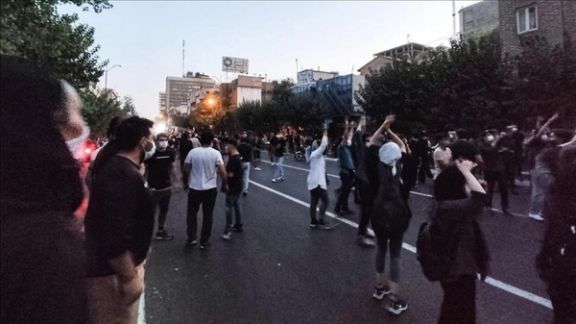
A human rights network has warned that at least 39 protesters are currently at risk of execution or death penalty sentences in Iran.
Iran Human Rights Organization says as most families are under pressure to stay quiet, this figure is a minimum and the real number is believed to be much higher.
The Oslo-based group also added that at least 469 people including 63 children and 32 women, have been killed by security forces in the current nationwide protests in Iran.
Iran Human Rights Organization in its latest report said the higher death toll relates to recently verified cases from the first two months of the protests.
Protesters have been killed in 25 provinces, with the most reported in Sistan-Baluchistan, Western Azerbaijan, Kordestan, Tehran and Mazandaran respectively, noted the organization.
It also noted that there is serious concern about the imminent execution of six protesters after one detainee with a confirmed death sentence was transferred from the general ward of Rajai Shahr Prison in Karaj, west of Tehran, to solitary confinement and at least five protesters detained in the western city of Oshnavieh charged with ‘moharebeh’ were transferred from Urmia Central Prison to an unknown location.
Moharebeh is an Islamic-Arabic term that in the lexicon of the Iranian regime means “fighting God” and its punishment is death.
Iran has been the scene of nationwide anti-regime protests after the death of Mahsa Amini in police custody in mid-September.